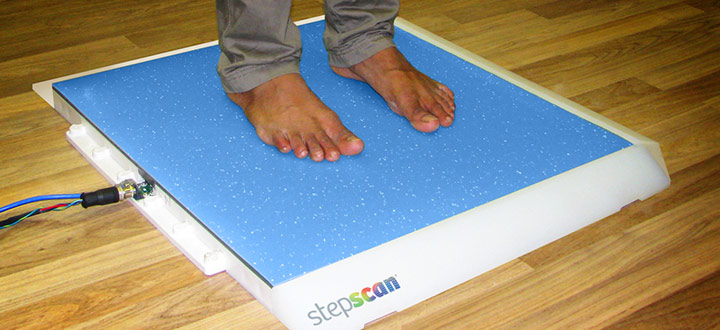Now that ViTRAK Systems has a growing list of paying customers, Crystal Trevors has her eyes set on expanding into the rehabilitation market, especially in the U.S., and a new round of funding.
Trevors is the CEO of ViTRAK, a Charlottetown startup commercializing a pressure-sensitive floor tile systems. The company has developed Stepscan, a patented electronic floor tile system that can be used to analyze people’s gait when they walk across it. The system can analyze the mobility and balance in patients or research subjects by measuring such factors as under-foot pressure distribution, stride, sway, and speed. The target market is researchers, clinicians, even physiotherapists.
ViTRAK raised about $2 million in funding in a 2014 round led by the Regis Duffy Bioscience Fund, and now the company is actively raising a Series A round, though Trevors revealed few details about the round.
What she did say is that Stepscan is now being used by about six clients, largely researchers, including one sale to a hospital in Melbourne, Australia.
“We’re commercial now – we launched in September 2015,” said Trevors in an interview in her Charlottetown office. “And our pipeline’s great. We’ve got a value of about $10 million in our pipeline.”
The company, which employs 10 people, has been quiet since it landed the funding but it has found demand for its tile systems with researchers since the launch a year ago. The bigger market is the clinical or rehabilitation market, in which the pressurized tiles are used to assess the condition of such people as those suffering from Parkinson’s disease.
ViTRAK now has approval by Health Canada and the Food and Drug Administration in the U.S. for clinical use, and Trevors plans to apply for approval in Europe soon. The Australian hospital will use the product for R&D while the company goes through the regulatory process in that country.
“That was a really great sale for us,” said Trevors, referring to the deal in Australia. “They issued an RFP [request for proposals] and when we read it it looked as if it was based on the specs for one of our competitors. But we bid on it and were approved.”
Trevors said the company’s existing clients include three Veterans Affairs facilities in Canada, which are using the systems for research and rehab. ViTRAK hopes to enter the VA market in a big way in the U.S.
Another aspect of the business that excites Trevors is the data that it is collecting and storing in the cloud. ViTRAK has established a baseline of data on the gait of healthy people with full use of their limbs, and data on 300 individuals have used the system as part of their treatment. Eventually, Stepscan could be used to assess instantly whether people are suffering from diseases like Parkinson’s, or whether their drugs are curing or slowing the advance of such conditions.
“My long-term vision is for this to be used in clinical drug trials,” said Trevors. “If you want to check the efficacy of a drug for Parkinson’s disease, for example, you can check the patient’s gait.”
She estimated that it would probably take three to five years to reach that point, adding that within five years the company could employ as many as 25 people.










